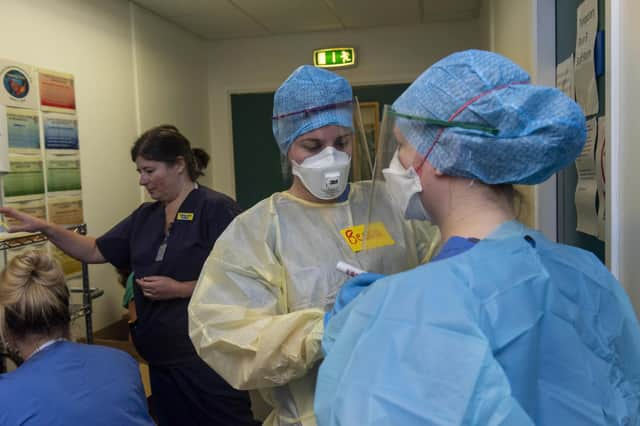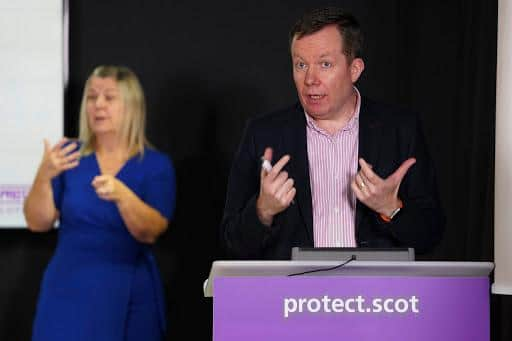Scottish rural areas may be stuck with higher Covid lockdown levels due to hospital capacity


Concerns about retaining ICU and hospital bed capacity could see areas such as East Lothian, Midlothian, South Lanarkshire, the islands of Argyll and Bute and more rural parts of the Highlands and the Borders, which rely on larger regional hospitals, remain on higher levels to keep the prevalence of Covid-19 down.
The comments were made as national clinical director Jason Leitch and constitutional secretary Michael Russell gave evidence to the Covid-19 committee in Holyrood this morning.
Advertisement
Hide AdAdvertisement
Hide AdProf Leitch pointed at South Lanarkshire, which feeds into three large hospitals such as the University Hospital Monklands in Airdrie, which have an ICU capacity of 30 beds for Covid-19, with modelling suggesting they will need 76 in six weeks’ time.


He said: “If somebody in rural Lanarkshire needs an intensive care bed, and the intensive care beds in Airdrie, Wishaw and East Kilbride are full, what do we do?
"That’s, of course, the challenge with the Highlands, Argyll and Bute and you can make the argument for almost any local authority.
"The public health advice will of course consider the local scenario, but it will also have to include the admissions and the ICU capacity.”
Both Mr Russell and Prof Leitch had been asked whether the issues with capacity potentially “contradict” the aim to have a more localised approach to restrictions.
Mr Russell said areas could see a difference in restrictions by street in some cases, with “some anomalies impossible to resolve”. He said the development of the levels system would see potential changes to measures within local authorities, but would start with the entirety of each local authority in one level.
Prof Leitch said: “The bits of Argyll and Bute that have low incidence presently have low incidence so that is what makes us nervous.
"It takes almost no effort for this virus to get to one of these small communities and to spread very quickly.
Advertisement
Hide AdAdvertisement
Hide Ad"That doesn’t mean we shouldn’t take a more regional approach over time and we should consider that with local public health teams.
"We will, of course, consider that being part of our advice into the decision makers.”
Pushed on the potential for some council areas with relatively low prevalence to be stuck on higher levels than other areas with much higher overall numbers of cases, Prof Leitch admitted that areas such as Inverclyde, Edinburgh and East Lothian had pushed back on being kept in level three.
Prof Leitch said while the levels for each local authority are to be reviewed each week, the levels are unlikely to change for any local authority for around three to four weeks to allow for a full incubation period and a half for the virus.
He said Inverclyde would likely be a “three or a high two” and could “move down over time faster than other local authorities”, depending on hospital capacity, case numbers, and prevalence.
This could see areas stuck in high levels of restrictions until the start of December, with restrictions for Christmas likely to be decided two or three weeks before the day itself.
A message from the Editor:
Thank you for reading this article. We're more reliant on your support than ever as the shift in consumer habits brought about by coronavirus impacts our advertisers.
If you haven't already, please consider supporting our trusted, fact-checked journalism by taking out a digital subscription.
Comments
Want to join the conversation? Please or to comment on this article.
